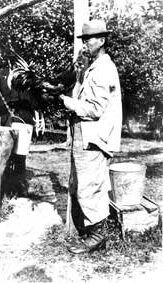The latest estimates indicate there are currently more than 11 million undocumented immigrants in the United States. Their presence is one of the most controversial issues in American politics, yet all Americans depend on them. They pay billions in taxes, start businesses that create jobs and make up half of all farmworkers who keep Americans fed, to name a few examples. Unfortunately, most undocumented immigrants’ contributions to the United States have gone unrecognized and unappreciated due to the risks of being open about immigration status. Fears of detention and deportation lead most undocumented immigrants to try to keep their status a secret. Here we have collected stories of seven famous immigrants who are or were undocumented. Some even received status through the Deferred Action for Childhood Arrivals (DACA) program.
Terms and background information:
The Immigrant Learning Center uses the term “undocumented” rather than “illegal.” Since there were no federal laws controlling international migration for the first hundred years of the United States, there were no undocumented immigrants in that time. Some undocumented immigrants have attained temporary protections through DACA. This program is only open to a subset of young undocumented immigrants who came to the United States as children, and its future is in doubt. People in this program are protected from automatic deportation and receive work authorization, but they are still unauthorized and have no clear path to citizenship. Most undocumented Americans enter the country legally and lose their legal status over time. The reverse can also happen, though there is no set process for gaining legal status.
Lue Gim Gong, Horticulturalist, 1860 – 1925
 The $6.7 billion Florida citrus industry owes a lot to Lue Gim Gong’s mother. She taught her son pollination techniques while raising him in China. As an adult in the United States, he would use those techniques to breed so many valuable new varieties of fruits that he gained the nickname the “Citrus Wizard.”
The $6.7 billion Florida citrus industry owes a lot to Lue Gim Gong’s mother. She taught her son pollination techniques while raising him in China. As an adult in the United States, he would use those techniques to breed so many valuable new varieties of fruits that he gained the nickname the “Citrus Wizard.”
American farmers almost missed the opportunity to benefit from Gong’s expertise. The Chinese Exclusion Act barred him from entering the United States, but he managed to get around it with forged documents and the support of a family farm in Florida. There he focused on cultivating plants that were resistant to early Florida frosts that could wipe out a farmer’s livelihood. He developed tomatoes with higher yields and grapefruits that dropped at optimal times, but he is best known for developing an early-ripening variety of sweet orange that bears his name. The Lue Gim Gong variety of the Valencia orange is still popular more than a century later and has saved the industry millions of dollars.
Lue Gim Gong was among the first undocumented immigrants to the United States. Before the Chinese Exclusion Act of 1882, there were no federal laws dictating who could or couldn’t enter the country, so it was impossible to enter “illegally.” The Act was passed due to the perception that Chinese Americans were stealing jobs from U.S.-born Americans, despite these immigrants making up just 0.002 percent of the population. This led to widespread discrimination and excluded many people like Gong from contributing more to the United States.
To learn more about other accomplished Asian American and Pacific Islander immigrants, explore our blog post highlighting their achievements. To learn more about Chinese American history, including the Chinese Exclusion Act, check out our free resource on the topic.
Neil Young, Singer, 1945 –

Source: Matthew Harris – https://www.flickr.com/photos/jomatt/210947508/in/set-72157594230512534/, CC BY-SA 2.0, https://commons.wikimedia.org/w/index.php?curid=24204725
Fans of the famous Canadian American folk and rock ’n roll singer-songwriter might be surprised to learn that Neil Young spent four years undocumented early in his career. He lacked a work visa and lived in fear of being pulled over for a traffic violation. Young obtained a green card in 1970 and became a citizen in 2020, motivated by his desire to vote in U.S. elections.
Had he not received that green card, the U.S. would have been deprived of an extraordinary musical career that has spanned more than half a century. He was a key member of Crosby, Stills, Nash and Young, playing with the band at the famous Woodstock Festival. Young is known for experimenting with different styles and genres, so much so that his record label once sued him for producing an “unrepresentative album.” His decades of touring and more than 50 albums have added up to a storied career. In 1995, Young was inducted into the Rock & Roll Hall of Fame. He has won two Grammys and been nominated for 28 of them.
Young has also been a passionate activist and philanthropist throughout his career. His music often conveys his beliefs, with lyrics featuring pacifist, environmentalist and anti-drug themes. He co-founded Farm Aid, a not-for-profit that supports farmers in the United States, and has played in their annual benefit concerts for decades. Since 1985, Farm Aid has raised more than $64 million to promote a strong and resilient family farm system of agriculture.
Charlize Theron, Actress, 1975 –

Source: MTV International, CC BY 3.0 <https://creativecommons.org/licenses/by/3.0>, via Wikimedia Commons
Today, Charlize Theron is best known for her critically acclaimed, Oscar-winning Hollywood performances, but her career almost ended before it could begin when she was deported at age 19. Theron came to the U.S. from South Africa as a teen to pursue a career in performing arts. Just as she was cast in her first major motion picture, The Devil’s Advocate, she was deported for overstaying her work visa. Theron had the rare opportunity to regain authorization and return to the United States to live and build an exceptional career. In 2007 she became a U.S. citizen. In 2016, Time named her one of the Time 100 most influential people in the world. Theron has also ventured into film production with her company Denver and Delilah Productions.
Theron always suspected she had been targeted for deportation because of a documentary she shot in Cuba that was unflattering to the U.S. government. Because of this, she was afraid of being too involved in political issues. Since becoming a U.S. citizen, she’s been outspoken on issues that are important to her, including women’s and LGBTQ+ rights. She’s also had a longstanding commitment to organizations working to stop the spread of HIV/AIDS, motivated by the high prevalence of the disease in her country of origin. Getting a second chance after her deportation enabled her to reach new heights in the United States.
Jose Antonio Vargas, Journalist / Activist, 1981 –

John S. and James L. Knight Foundation, CC BY-SA 2.0 <https://creativecommons.org/licenses/by-sa/2.0>, via Wikimedia Commons
At 30 years old, Jose Antonio Vargas had what appeared to be an enviably successful life. After coming to the U.S. from the Philippines to live with his grandparents at age 12, he earned a full scholarship to college and took a series of prestigious journalism jobs that netted him a Pulitzer Prize among other accolades. Vargas risked it all when he wrote The New York Times article My Life as an Undocumented Immigrant, which detailed how he navigated life since discovering he was undocumented as a teen. In “coming out” as an undocumented immigrant, he put himself at risk of deportation, but he was inspired by the young activists who were sharing their legal status to fight for immigration reform. In the article, he wrote, “I’m done running … I’ve decided to come forward, own up to what I’ve done.”
In the years since, Vargas has certainly done so. He founded the not-for-profit Define American, which works to change the prevailing narrative about undocumented immigrants and share facts about immigration in the United States. Vargas has also highlighted the unique challenges facing LGBTQ+ undocumented immigrants like himself, who until recently, were unable to regularize their status via a federally recognized same-sex marriage. He continued to share his own story via the documentary Documented: A film by an undocumented American, the book Dear America: Notes of an Undocumented Citizen and testimony in front of Congress. He used his new status as the most famous openly undocumented American to advocate for other people in less privileged positions.
Bambadjan Bamba, Actor, 1982 –
When war broke out in Côte d’Ivoire, Bambadjan Bamba’s family fled political persecution to seek asylum in the United States. Bamba was a child at the time, and it wasn’t until he was graduating high school that he realized that his family had become undocumented. By the time his parents succeeded in their asylum case, Bamba was too old to automatically gain legal status with them. Being granted Deferred Action for Childhood Arrival (DACA) status gave him stability and the chance to pursue an acting career. Scoring roles in projects like Grey’s Anatomy, Suicide Squad and The Good Place granted him professional success, but Bamba still has no clear path to citizenship or even long-term authorization.
After being cast in the film Black Panther, Bamba was inspired by a storyline in the Black Panther comics in which the hero has to live as an undocumented immigrant in the United States. He decided to come out as undocumented himself. In a video he created with the not-for-profit Define American, founded by fellow undocumented immigrant Jose Antonio Vargas, Bamba discusses his fear of being deported and losing his career, family and the rest of the life he has built in the United States. Since revealing his legal status, Bamba has given speeches, written op-eds and boldly advocated for the rights of all undocumented people to live freely. He’s been particularly vocal about the challenges facing undocumented Black immigrants, who face disproportionately high rates of arrests and deportation but are often left out of conversations about immigration. In recognition of his work, Bamba has been given the Courageous Advocate Award by the American Civil Liberties Union and the Courageous Luminary award from National Immigration Law Center.
Dan-el Padilla Peralta, Writer / Scholar, 1984 –
As an undocumented Dominican American boy in the New York City shelter system, Peralta stumbled across a book about Ancient Rome in the shelter library. That chance discovery set him on the path to becoming one of the leading scholars of his generation in “classics,” the study of ancient Greek and Roman literature, philosophy and history. With the support of his teachers, Peralta earned a full scholarship to study the classics at Princeton, where he graduated as a salutatorian. He followed up this achievement by earning a two-year scholarship to Oxford, but going to Oxford meant risking being turned away when he returned to the U.S. Not even the personal intervention of President Bill Clinton, Senator Hillary Clinton, Senator Chuck Schumer, eight other congresspeople, the dean of Harvard Law School and a number of other luminaries who took up his case could sway U.S. Citizenship and Immigration Services into offering him long-term protections, though he received a temporary waiver that allowed him to attend.
Since establishing himself as a prominent classicist, he’s used his background to enhance his work. His experience as one of very few non-white students in his classes motivated him to fight to diversify the discipline. He has also fought against white supremacists who want to use the classics to establish the foundation of idealized “white culture.” Much of his scholarship focuses on how migration, travel and citizenship are portrayed in classical literature. Peralta also published a memoir, Undocumented: A Dominican Boy’s Odyssey from a Homeless Shelter to the Ivy League, sharing his experience with the world.
Karla Cornejo Villavicencio, Writer / Activist, 1989 –

National Book Foundation, CC BY 3.0 <https://creativecommons.org/licenses/by/3.0>, via Wikimedia Commons
Karla Cornejo Villavicencio made waves when she “came out” as undocumented shortly before graduating Harvard. Her extraordinary story as the first openly undocumented immigrant to graduate Harvard was shocking, but Villavicencio turned down the immediate offers to pen a memoir. Instead, she decided to share the stories of people less privileged than her, traveling the country to interview farm workers, delivery workers and other undocumented blue-collar workers.
She began writing the morning after the 2016 election. The resulting book, The Undocumented Americans, was recognized by The New York Times for covering “vigilantly guarded communities whose stories are largely absent from modern journalism and literature.” Villavicencio has recently received permanent residency but plans on continuing to write and share the stories of undocumented Americans.
Conclusion
For each of these immigrant success stories, there are many more extraordinary foreign-born people who have been forced to hide their status and go unrecognized. While their individual stories may be hidden, we encourage you to explore research about undocumented immigrants’ overall high tax contributions and positive impact on the economy, and the economic benefits of providing a pathway to citizenship.
